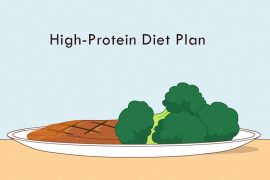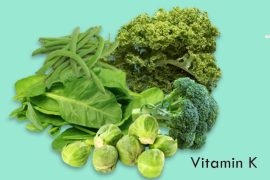There is an old saying, “You are what you eat,” which means that the food we consume directly affects our physical and mental health. There is a deep connection between diet and well-being. Eating healthy now can lead to a better and healthier life later. Consuming a diet rich in fruits, vegetables, whole grains, and unsaturated fats during midlife, around the age of 40s, increases the likelihood of better mental, physical, and cognitive health in old age.
Recently, at an American Society for Nutrition conference in Chicago, findings from the Harvard Nurses’ Health Study and Health Professionals Follow-Up Study were presented. This study, which spanned 30 years and included over 100,000 participants, revealed that those who began following a healthy diet at the age of 40s had 84% better physical and mental health by the age of 70 compared to those who followed an unhealthy diet. These individuals were aging more healthily and were largely free from diseases.
What is Healthy Aging?
According to the World Health Organization, healthy aging means being physically and mentally independent, capable of fulfilling one’s dreams, making personal decisions, and contributing to society. The study defines healthy aging as living at least until the age of 70 with good cognitive function, mental health, and physical well-being, without organ failure or life-threatening diseases like cancer.
The study found that about 84% of people with a healthy diet pattern experienced healthy aging.
What Kind of Diet Plan Promotes Healthy Aging?
According to the study, following the dietary patterns suggested by our ancestors can help us live better lives. These plans can be adapted as per time and climate needs. Here are some healthy diet patterns suggested by the study, which may sound a bit complicated or foreign. However, each of these different diets is explained in detail below:
- Hyperinsulinemia Diet
Dr. Anu Agarwal, a senior dietitian from Delhi and founder of ‘OneDietToday,’ explains that the Hyperinsulinemia Diet involves eliminating carbohydrates and starch from the diet. The goal is to reduce insulin levels, which helps control blood sugar levels, aids in weight management, and lowers the risk of diabetes and heart disease.
- Planetary Health Diet
The Planetary Health Diet focuses on a balanced intake of mostly plant-based foods while allowing some meat or dairy products for protein. This diet promotes good health and sustainability for the planet. It can improve heart health, aid in weight management, and is beneficial for gut health.
- Mediterranean Diet
The Mediterranean Diet emphasizes fruits, vegetables, whole grains, beans, nuts, and olive oil, with moderate consumption of fish and chicken. A 2022 study published in the journal Current Opinion in Clinical Nutrition and Metabolic Care found that this diet offers anti-inflammatory benefits, reducing the risk of heart disease, stroke, and improving brain health. It also aids in weight management and controlling blood sugar levels.
- Dietary Approaches to Stop Hypertension (DASH) Diet
With the risk of lifestyle diseases increasing in midlife, hypertension is very common. The DASH diet is designed to prevent high blood pressure and includes a high intake of fruits, vegetables, whole grains, and low-fat dairy products. It helps control blood pressure and, according to a study published in the National Library of Medicine, can improve heart health and reduce cholesterol levels.
- Mediterranean-DASH Intervention for Neurodegenerative Delay (MIND) Diet
The MIND Diet combines the Mediterranean and DASH diets, emphasizing antioxidant-rich foods like berries, leafy greens, and nuts. This diet helps maintain mental health, reducing the risk of Alzheimer‘s and cognitive decline, and supports brain health as we age.
- Empirical Dietary Inflammatory Pattern
This diet emphasizes anti-inflammatory foods such as fruits, vegetables, whole grains, and fatty fish. Following this diet helps reduce inflammation, potentially lowering the risk of chronic diseases related to inflammation, such as arthritis and heart disease.
Creating Your Own Balanced Diet
Dr. Anu Agarwal mentions that many people struggle to stick to a single diet pattern for a long time and may feel restricted. To overcome this, you can take a middle path by incorporating your favorite foods from various diet patterns into your own balanced diet. Just ensure it remains balanced by following these 5 points:
- Seasonal Vegetables and Fruits: Include these in your diet as they are excellent sources of vitamins and minerals.
- Whole Grains: Incorporate whole grains, which provide complex carbohydrates, fiber, and essential nutrients.
- Beans, Nuts, Fish, and Lean Protein: These will help meet your protein needs while avoiding saturated fats.
- Nuts and Seeds: Add these for essential fats that are good for heart health.
- Hydration and Avoidance of Sugary Drinks: Drink plenty of water, avoid sugary drinks, and reduce the intake of processed foods.
By following these points, you can create a flexible and nutritious diet that supports healthy aging and overall well-being.
Disclaimer:
The information contained in this article is for educational and informational purposes only and is not intended as a health advice. We would ask you to consult a qualified professional or medical expert to gain additional knowledge before you choose to consume any product or perform any exercise.







